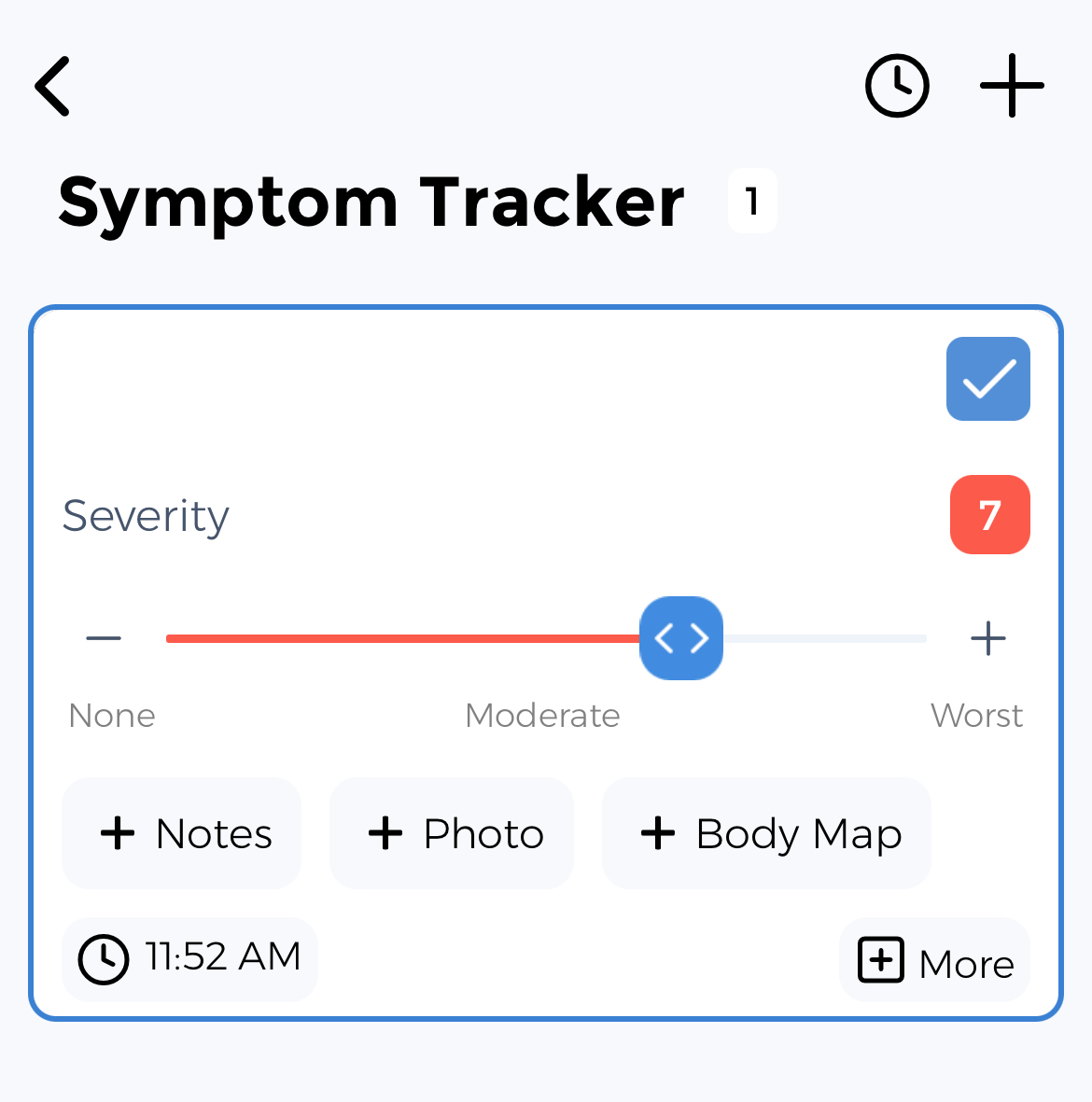Contact Lens Complications Symptom Tracker: Your Health Assistant
Living with Contact Lens Complications means dealing with eye redness, pain, light sensitivity, and more. But here's the truth: Data is your most powerful tool. Every logged symptom reveals patterns—so you can take informed action.
Contact lens complications encompass various eye conditions that can develop from contact lens wear, including infections, inflammatory responses, and mechanical trauma to the eye surface. These range from minor irritation to sight-threatening conditions. Tracking symptoms, lens hygiene practices, and wearing patterns helps prevent complications and optimize lens wear.
Key Contact Lens Complications Symptoms You Should Track
Struggling with symptoms like these? Tracking them reveals patterns, triggers, and how they impact your daily life.
Eye redness
Pain
Light sensitivity
Excessive tearing
Blurred vision
Discharge
Foreign body sensation
Burning sensation
Itching
Dryness
Swelling
Contact lens discomfort
Cloudy vision
Decreased lens tolerance
Track Your Contact Lens Complications Treatments
Tracking how these common treatments affect your symptoms can help you and your healthcare provider optimize your care plan:
Our tracker helps you monitor when you take medications and how they affect your symptoms over time.
Standardized Contact Lens Complications Assessments
Complete these evidence-based assessments in the App to measure your severity and monitor your progress:
⚡ Knowledge Is Your Superpower
The difference between feeling overwhelmed by Contact Lens Complications and feeling in control starts with data. When you track your symptoms, you transform uncertainty into clarity. Every data point brings you closer to understanding your unique patterns.
It's free to try for anyone—whether you're managing your own condition, supporting a child, helping an aging parent, or assisting a partner. Our tracker adapts to your specific role in the health journey.
How the CareClinic Contact Lens Complications Symptom Tracker Adapts to Your Needs
Adults
Caregivers
Parents of Children
Young Adults
Your Complete Contact Lens Complications Management Toolkit
Uncover Patterns & Insights
Map your Contact Lens Complications symptoms like a detective solving a case.
Understand Your Medication's Impact
Turn guesswork into strategy. See how treatments affect your well-being with clear health insights.
Objectively Measure Your Progress
Use clinically validated tools to objectively measure your progress.
Other Tools You May Like...
Plus 4 more specialized tracking tools available
Access All Tracking ToolsAlso Supports Other Conditions Like
Corneal Ulcer Tracker
Corneal Ulcer warriors use our tracker to monitor eye pain, redness.
Dry Eye Tracker
Dry Eye warriors use our tracker to monitor eye dryness, burning sensation.
Giant Papillary Conjunctivitis Tracker
Giant Papillary Conjunctivitis warriors use our tracker to monitor itchy eyes, mucous discharge.
Corneal Abrasion Tracker
Corneal Abrasion warriors use our tracker to monitor eye pain, feeling of something in the eye.
Success Stories from Our Community
"My with Contact Lens Complications became so much easier once I started tracking. The solution usage tracker made it easy to spot connections between eye redness and diet changes, giving me confidence I never had before."
"After my diagnosis with Contact Lens Complications, I felt lost. This tracker became my guide. I could finally differentiate between different types of swelling, and that knowledge alone made a huge difference."
Take Control of Your Contact Lens Complications Journey
Transform from feeling like a passive patient to becoming an informed self-advocate. Join thousands who've discovered new insights about their condition.
Designed by people who understand the daily challenges of managing chronic conditions, we're here to support you and your ❤️ ones.
Download Your Contact Lens Complications Tracker NowYour Data is Protected
Private & Secure
HIPAA Compliant
GDPR Compliant
Never Sell Data
Your data is yours: You get full control over who can view your information. CareClinic keeps all your data secure and encrypted.
References based on studies by:

